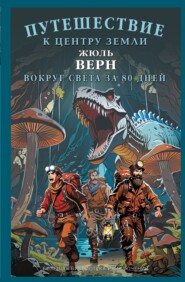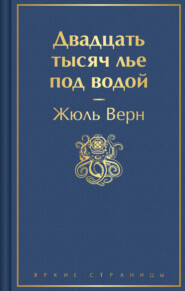По всем вопросам обращайтесь на: info@litportal.ru
(©) 2003-2024.
✖
Celebrated Travels and Travellers, Part 3. The Great Explorers of the Nineteenth Century
Настройки чтения
Размер шрифта
Высота строк
Поля
A rich merchant, however, Boo-Bucker-Boo-Khaloum by name, a great friend of the pacha, gave the explorers a hint that if he received certain presents he would smooth away all difficulties. He even offered to escort them himself to Bornou, for which province he was bound if he could obtain the necessary permission from the Pacha of Tripoli.
Denham, believing Boo-Khaloum to be acting honestly, went off to Tripoli to obtain the governor's sanction, but on his arrival there he obtained only evasive answers, and finally threatened to embark for England, where he said he would report the obstacles thrown in his way by the pacha, in the carrying out of the objects of the exploring expedition.
These menaces produced no effect, and Denham actually set sail, and was about to land at Marseilles when he received a satisfactory message from the bey, begging him to return, and authorizing Boo-Khaloum to accompany him and his companions.
On the 30th October Denham rejoined Oudney and Clapperton at Murzuk, finding them considerably weakened by fever and the effects of the climate.
Denham, convinced that change of air would restore them to health, persuaded them to start and begin the journey by easy stages. He himself set out on the 20th of November with a caravan of merchants from Mesurata, Tripoli, Sockna, and Murzuk, escorted by 210 Arab warriors chosen from the most intelligent and docile of the tribes, and commanded by Boo-Khaloum.
The expedition took the route followed by Lyon and soon reached Tegerry, which is the most southerly town of Fezzan, and the last before the traveller enters the desert of Bilma.
Denham made a sketch of the castle of Tegerry from the southern bank of a salt lake near the town. Tegerry is entered by a low narrow vaulted passage leading to a gate in a second rampart. The wall is pierced with apertures which render the entrance by the narrow passage very difficult. Above the second gate there is also an aperture through which darts, and fire-brands may be hurled upon the besiegers, a mode of warfare once largely indulged in by the Arabs. Inside the town there are wells of fairly good water. Denham is of opinion that Tegerry restored, well-garrisoned and provisioned, could sustain a long siege. Its situation is delightful. It is surrounded by date-trees, and the water in the neighbourhood is excellent. A chain of low hills stretches away to the east. Snipes, ducks, and wild geese frequent the salt lakes near the town.
Leaving Tegerry, the travellers entered a sandy desert, across which it would not have been easy to find the way, had it not been marked out by the skeletons of men and animals strewn along it, especially about the wells.
"One of the skeletons we saw to-day," says Denham, "still looked quite fresh. The beard was on the chin, the features could be recognized. 'It is my slave,' exclaimed one of the merchants of the kafila. 'I left him near here four months ago.' 'Make haste and take him to the market!' cried a facetious slave merchant, 'lest some one else should claim him.'"
Here and there in the desert are oases containing towns of greater or less importance, at which the caravans halt. Kishi is one of the most frequented of these places, and there the money for the right of crossing the desert is paid. The Sultan of Kishi, the ruler of a good many of these petty principalities, and who takes the title of Commander of the Faithful, was remarkable for a complete disregard of cleanliness, a peculiarity in which, according to Denham, his court fully equalled him.
This sultan paid Boo-Khaloum a visit in his tent, accompanied by half a dozen Tibboos, some of whom were positively hideous. Their teeth were of a dark yellow colour, the result of chewing tobacco, of which they are so fond that they use it as snuff as well as to chew. Their noses looked like little round bits of flesh stuck on to their faces with nostrils so wide that they could push their fingers right up them. Denham's watch, compass, and musical snuffbox astonished them not a little. He defines these people as brutes with human faces.
A little further on the travellers reached the town of Kirby, situated in a wâdy near a low range of hills of which the highest are not more than 400 feet above the sea level, and between two salt lakes, produced by the excavations made for building. From the centre of these lakes rise islets consisting of masses of muriate and carbonate of soda. The salt produced by these wâdys, or depressions of the soil, form an important article of commerce with Bornou and the whole of the Soudan.
It would be impossible to imagine a more wretched place than Kirby. Its houses are empty, containing not so much as a mat. How could it be otherwise with a place liable to incessant raids from the Tuaricks?
The caravan now crossed the Tibboo country, inhabited by a peaceful, hospitable people to whom, as keepers of the wells and reservoirs of the desert, the leaders of caravans pay passage-money. The Tibboos are a strong, active race, and when mounted on their nimble steeds they display marvellous skill in throwing the lance, which the most vigorous of their warriors can hurl to a distance of 145 yards. Bilma is their chief city, and the residence of their sultan.
On the arrival of the travellers at Bilma, the sultan, escorted by a number of men and women, came out to meet the strangers. The women were much better-looking than those in the smaller towns; some of them had indeed very pleasant faces, their white, regular teeth contrasting admirably with their shining black skins, and the three "triangular flaps of hair, streaming with oil." Coral ornaments in their noses, and large amber necklaces round their throats, gave them what Denham calls a "seductive appearance." Some of them carried fans made of grass or hair, with which to keep off the flies; others were provided with branches of trees; all, in fact, carried something in their hands, which they waved above their heads. Their costume consisted of a loose piece of Soudan cloth, fastened on the left shoulder, and leaving the right uncovered, with a smaller piece wound about the head, and falling on the shoulders or flung back. In spite of this paucity of clothing, there was not the least immodesty in their bearing.
A mile from Bilma, and beyond a limpid spring, which appears to have been placed there by nature to afford a supply of water to travellers, lies a desert, which it takes no less than ten days to cross. This was probably once a huge salt lake.
On the 4th February, 1823, the caravan reached Lari, a town on the northern boundary of Bornou, in lat. 14° 40' N. The inhabitants, astonished at the size of the "kafila," fled in terror at its approach.
"Beyond, however," says Denham, "was an object full of interest to us, and the sight of it produced a sensation so gratifying and inspiring, that it would be difficult for language to convey an idea of its force or pleasure. The great Lake Tchad, glowing with the golden rays of the sun in its strength, appeared to be within a mile of the spot on which we stood."
On leaving Lari, the appearance of the country changed completely. The sandy desert was succeeded by a clay soil, clothed with grass and dotted with acacias and other trees of various species, amongst which grazed herds of antelopes, whilst Guinea fowls and the turtle-doves of Barbary flew hither and thither above them. Towns took the place of villages, with huts of the shape of bells, thatched with durra straw.
The travellers continued their journey southwards, rounding Lake Tchad, which they had first touched at its most northerly point.
The districts bordering on this sheet of water were of a black, firm, but muddy soil. The waters rise to a considerable height in winter, and sink in proportion in the summer. The lake is of fresh water, rich in fish, and frequented by hippopotami and aquatic birds. Near its centre, on the south-east, are the islands inhabited by the Biddomahs, a race who live by pillaging the people of the mainland.
The explorers had sent a messenger to Sheikh El Khanemy, to ask permission to enter his capital, and an envoy speedily arrived to invite Boo-Khaloum and his companions to Kouka.
On their way thither, the travellers passed through Burwha, a fortified town which had thus far resisted the inroads of the Tuaricks, and crossed the Yeou, a large river, in some parts more than 500 feet in width, which, rising in the Soudan, flows into Lake Tchad.
On the southern shores of this river rises a little town of the same name, about half the size of Burwha.
The caravan soon reached the gates of Kouka, where, after a journey extending over two months and a half, they were received by a body of cavalry 4000 strong, under perfect discipline. Amongst these troops was a corps of blacks forming the body-guard of the sheikh, whose equipments resembled those of ancient chivalry.
They wore, Denham tells us, suits of chain armour covering the neck and shoulders. These were fastened above the head, and fell in two portions, one in front and one behind, so as to protect the flanks of the horse and the thighs of the rider. A sort of casque or iron coif, kept in its place by red, white or yellow turbans, tied under the chin, completed the costume. The horses' heads were also guarded by iron plates. Their saddles were small and light, and their steel stirrups held only the point of the feet, which were clad in leather shoes, ornamented with crocodile skin. The horsemen managed their steeds admirably, as, advancing at full gallop, brandishing their spears, they wheeled right and left of their guests, shouting "Barca! Barca!" (Blessing! Blessing!).
Surrounded by this brilliant and fantastic escort, the English and Arabs entered the town, where a similar military display had been prepared in their honour.
They were presently admitted to the presence of Sheikh El-Khanemy, who appeared to be about forty-five years old, and whose face was prepossessing, with a happy, intelligent, and benevolent expression.
The English presented the letters of the pacha, and when the sheikh had read them, he asked Denham what had brought him and his companions to Bornou.
"We came merely to see the country," replied Denham, "to study the character of its people, its scenery, and its productions."
"You are welcome," was the reply; "it will be a pleasure to me to show you everything. I have ordered huts to be built for you in the town; you may go and see them, accompanied by one of my people, and when you are recovered from the fatigue of your long journey, I shall be happy to see you."
The travellers soon afterwards obtained permission to make collections of such animals and plants as appeared to them curious, and to make notes of all their observations. They were thus enabled to collect a good deal of information about the towns near Kouka.
Kouka, then the capital of Bornou, boasted of a market for the sale of slaves, sheep, oxen, cheese, rice, earth-nuts, beans, indigo, and other productions of the country. There 100,000 people might sometimes be seen haggling about the price of fish, poultry, meat – the last sold both raw and cooked – or that of brass, copper, amber and coral. Linen was so cheap in these parts, that some of the men wore shirts and trousers made of it.
Beggars have a peculiar mode of exciting compassion; they station themselves at the entrance to the market, and, holding up the rags of an old pair of trousers, they whine out to the passers-by, "See! I have no pantaloons!" The novelty of this mode of proceeding, and the request for a garment, which seemed to them even more necessary than food, made our travellers laugh heartily until they became accustomed to it.
Hitherto the English had had nothing to do with any one but the sheikh, who, content with wielding all real power, left the nominal sovereignty to the sultan, an eccentric monarch, who never showed himself except through the bars of a wicker cage near the gate of his garden, as if he were some rare wild beast. Curious indeed were some of the customs of this court, not the least so the fancy for obesity: no one was considered elegant unless he had attained to a bulk generally looked upon as very inconvenient.
Some exquisites had stomachs so distended and prominent that they seemed literally to hang over the pommel of the saddle; and in addition to this, fashion prescribed a turban of such length and weight that its wearer had to carry his head on one side.
These uncouth peculiarities rivalled those of the Turks of a masked ball, and the travellers had often hard work to preserve their gravity. To compensate, however, for the grotesque solemnity of the various receptions, a new field for observation was open, and much valuable information might now be acquired.
Denham wished to proceed to the south at once, but the sheikh was unwilling to risk the lives of the travellers entrusted to him by the Bey of Tripoli. On their entry into Bornou, the responsibility of Boo-Khaloum for their safety was transferred to him.
So earnest, however, were the entreaties of Denham, that El-Khanemy at last sanctioned his accompanying Boo-Khaloum in a "ghrazzie," or plundering expedition against the Kaffirs or infidels.
The sheikh's army and the Arab troops passed in succession Yeddie, a large walled city twenty miles from Angoumou, Badagry, and several other towns built on an alluvial soil which has a dark clay-like appearance.
They entered Mandara, at the frontier town of Delow, beyond which the sultan of the province, with five hundred horsemen, met his guests.
Denham describes Mahommed Becker as a man of short stature, about fifty years old, wearing a beard, painted of a most delicate azure blue. The presentations over, the sultan at once turned to Denham, and asked who he was, whence he came, what he wanted, and lastly if he were a Mahommedan. On Boo-Khaloum's hesitating to reply, the sultan turned away his head, with the words, "So the pacha numbers infidels amongst his friends!"
This incident had a very bad effect, and Denham was not again admitted to the presence of the sultan.
The enemies of the Pacha of Bornou and the Sultan of Mandara, were called Fellatahs. Their vast settlements extended far beyond Timbuctoo. They are a handsome set of men, with skins of a dark bronze colour, which shows them to be of a race quite distinct from the negroes. They are professors of Mahommedanism, and mix but little with the blacks. We shall presently have to speak more particularly of the Fellatahs, Foulahs, or Fans, as they are called throughout the Soudan.
South of the town of Mora rises a chain of mountains, of which the loftiest peaks are not more than 2500 feet high, but which, according to the natives, extend for more than "two months' journey."
The most salient point noticed by Denham in his description of the country, is a vast and apparently interminable chain of mountains, shutting in the view on every side; this, though in his opinion, inferior to the Alps, Apennines, Jura, and Sierra Morena in rugged magnificence and gigantic grandeur, are yet equal to them in picturesque effect. The lofty peaks of Valhmy, Savah, Djoggiday, Munday, &c., with clustering villages on their stony sides, rise on the east and west, while Horza, exceeding any of them in height and beauty, rises on the south with its ravines and precipices.
Derkulla, one of the chief Fellatah towns, was reduced to ashes by the invaders, who lost no time in pressing on to Musfeia, a position which, naturally very strong, was further defended by palisades manned by a numerous body of archers. The English traveller had to take part in the assault. The first onslaught of the Arabs appeared to carry all before it; the noise of the fire-arms, with the reputation for bravery and cruelty enjoyed by Boo-Khaloum and his men, threw the Fellatahs into momentary confusion, and if the men of Mandara and Bornou had followed up their advantage and stormed the hill, the town would probably have fallen.
The besieged, however, noticing the hesitation of their assailants, in their turn assumed the defensive, and rallying their archers discharged a shower of poisoned arrows, to which many an Arab fell a victim, and before which the forces of Bornou and Mandara gave way.
Barca, the Bornou general, had three horses killed under him. Boo-Khaloum and his steed were both wounded, and Denham was in a similar plight, with the skin of his face grazed by one arrow and two others lodged in his burnoos.
The retreat soon became a rout. Denham's horse fell under him, and the major had hardly regained his feet when he was surrounded by Fellatahs. Two fled on the presentation of the Englishman's pistols, a third received the charge in his shoulder.

















